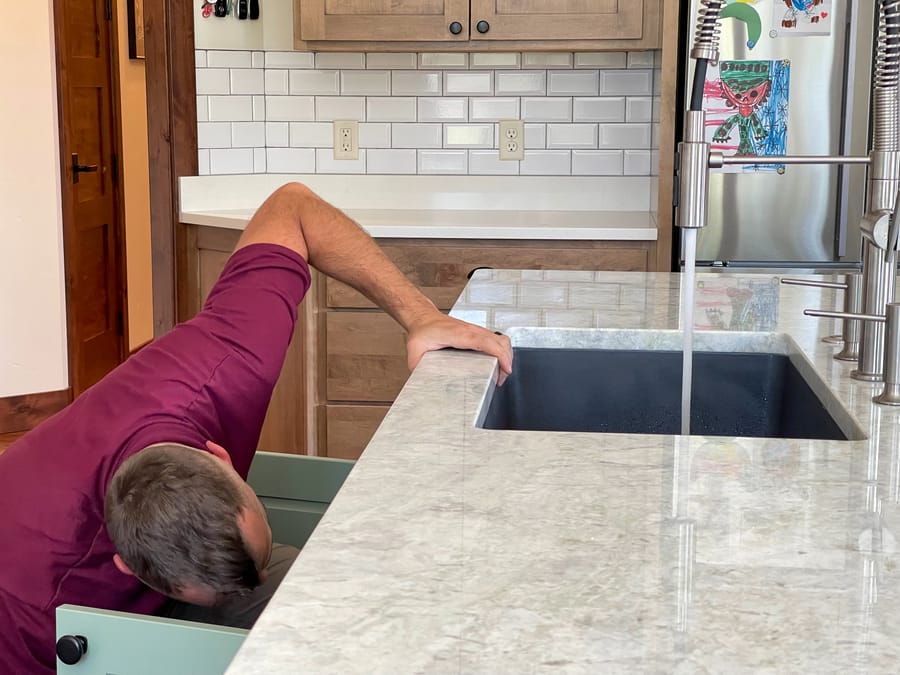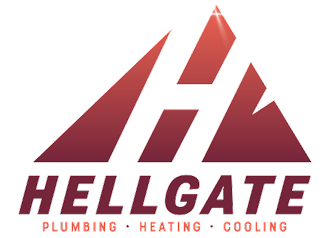Drain Cleaning in the Greater Montana Area

Few things are as frustrating as a sink that refuses to drain or a shower that leaves you standing in an inch of soapy water. While it’s tempting to reach for a bottle of liquid cleaner, those harsh chemicals often do more damage to your pipes than they do to the clog. In the Greater Montana area, our plumbing systems face unique challenges, from the mineral-heavy water in Missoula to the debris that finds its way into basement drains during a seasonal thaw. When your home’s drainage system slows down, it’s usually a sign that a deeper issue is brewing within your pipes.
At Hellgate Plumbing, Heating & Cooling, we provide professional drain cleaning that goes beyond a temporary fix. You might be dealing with a kitchen sink backed up with cooking grease or a bathroom drain struggling with years of hair and soap scum buildup. Our team uses specialized tools to clear the entire diameter of your pipes, restoring the smooth, fast flow your household needs. We’ve spent years helping our neighbors in Lolo, Florence, and the surrounding areas keep their plumbing moving without the stress of recurring backups. If you’re tired of fighting with a plunger, let us provide a lasting solution. Reach out today by calling or filling out our online contact form to get your drains back to normal.

Our Drain Cleaning Services
Every drain in your house has its own job to do, and each one can fail for different reasons. We don’t believe in a one-size-fits-all approach to plumbing maintenance. Instead, our technicians evaluate the specific type of clog and the age of your pipes to choose the safest and most effective clearing method. Our goal is to protect your plumbing infrastructure while ensuring you don’t have to worry about a backup tonight.
Kitchen and Utility Sink Clearing
Kitchen drains take a lot of abuse from fats, oils, and food particles that solidify over time. Even a high-powered garbage disposal can’t prevent some debris from clinging to the pipe walls. We use professional-grade mechanical snakes and augers to break through these tough, greasy blockages. By thoroughly cleaning the internal surfaces of the pipe, we help prevent the “glue-like” buildup that causes frequent kitchen clogs.
Bathroom Fixture and Shower Drainage
Bathroom drains are the most common victims of hair, toothpaste, and mineral buildup. These materials create a mesh-like obstruction that slowly chokes off the water flow. We specialize in clearing bathroom sinks, tubs, and showers without damaging your decorative fixtures or porcelain. Our process ensures that the entire trap and the connecting branch lines are free and clear, so you can stop worrying about standing water during your morning routine.
Main Line Maintenance and Root Removal
Sometimes, the problem isn’t inside your house at all. In many Greater Montana area neighborhoods, tree roots can find their way into the main sewer line through tiny cracks or joints. This leads to slow drains throughout the entire house or even sewage backups in the lowest points of the home. We offer advanced diagnostics to locate these deep-set obstructions and use heavy-duty equipment to clear the line, protecting your property from the mess and expense of a major sewer failure.
We're here to help!
Our team will help you select the perfect Rheem model for your specific needs.
Why Our Neighbors Trust Our Drain Services
Choosing a professional for your plumbing needs ensures that the job is done right the first time without risking the integrity of your pipes. At Hellgate Plumbing, Heating & Cooling, we prioritize transparency and technical excellence. Our clients know they can count on us for honest advice and a clean workspace, no matter how tough the clog might be.
- Free annual inspections for Diamond Club members: We believe prevention is the best medicine. As a member of our Diamond Club, you receive an annual plumbing inspection where we check your drains for early signs of trouble. This helps you avoid the cost and headache of an emergency backup.
- Modern equipment for safer clearing: We use tools designed to clear obstructions without scraping or thinning the walls of your pipes. This is especially important for the historic homes in Missoula that may have older, more delicate plumbing systems.
- 10% discount for club members: Beyond priority scheduling, Diamond Club members enjoy significant savings on all drain cleaning and repair services. It’s our way of rewarding the families who trust us with their home’s long-term health.
- Clear, upfront communication: We explain what caused the blockage and how you can prevent it from returning. You’ll receive a straightforward price before we start the work, so there are no surprises on your bill.
- Mess-free service guarantee: We know that drain work can be dirty, but we make sure your home stays spotless. Our technicians use protective floor coverings and specialized vacuums to ensure we leave your kitchen or bathroom exactly as we found it.
Clear Your Drains for Good
You don’t have to live with slow-moving water or the constant threat of a backup. Our expert team is ready to restore your plumbing’s performance with fast, professional service. Contact Hellgate Plumbing, Heating & Cooling today to schedule your drain cleaning in Missoula, Lolo, or the Greater Montana area. We’re here to help you get things flowing again.
$99
Whole Home Plumbing InspectionExpires: Mar 31, 2026
Fill out this form and our team will get back to you as soon as possible.
Frequently Asked Questions
Get Assistance Today
Don't Wait... Call Hellgate
Responsive and reliable. Help when you need it most. Hellgate Plumbing, Heating and Cooling has provided residents of Missoula, Lolo, Florence, MT, and beyond with reliable and affordable HVAC and plumbing services for over 40 years.
